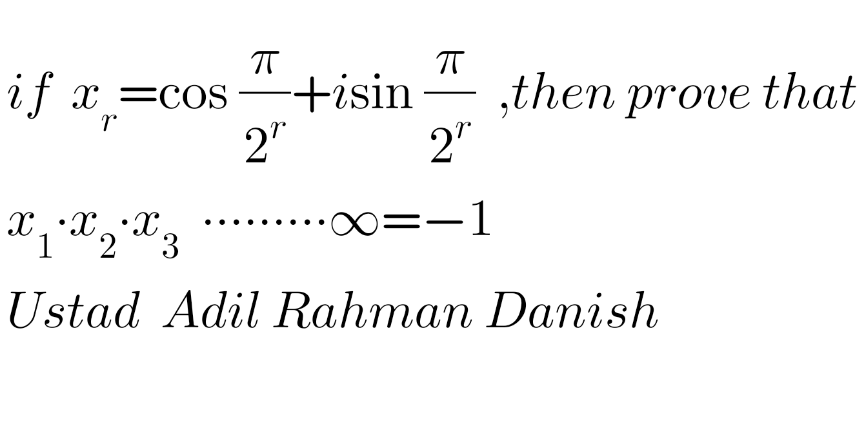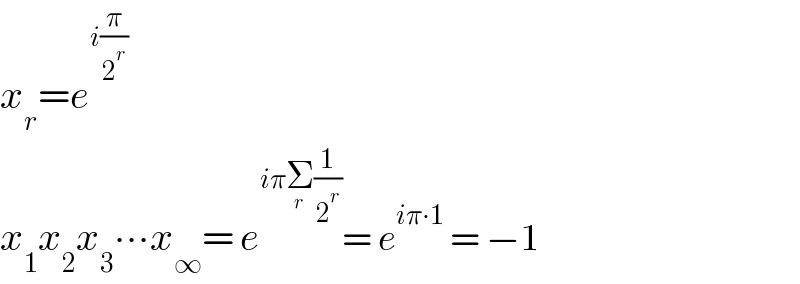
Question and Answers Forum
Question Number 166013 by mathlove last updated on 11/Feb/22

Answered by JDamian last updated on 11/Feb/22

| ||
Question and Answers Forum | ||
Question Number 166013 by mathlove last updated on 11/Feb/22 | ||
 | ||
Answered by JDamian last updated on 11/Feb/22 | ||
 | ||
| ||